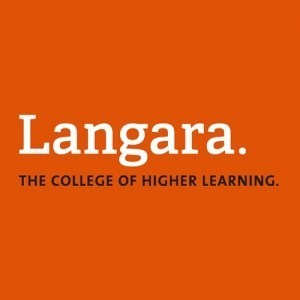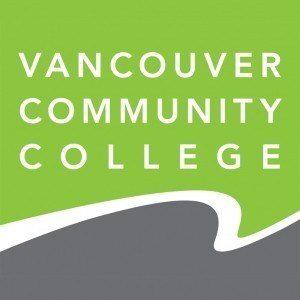The Bachelor of Arts in Linguistics at Concordia University offers students a comprehensive exploration of human language, focusing on the scientific study of language structures, their social functions, and cognitive underpinnings. This program aims to provide students with a deep understanding of the diverse facets of language, including phonetics, phonology, morphology, syntax, semantics, and pragmatics. Throughout the program, students will analyze language data, investigate language acquisition processes, and examine linguistic variation and change across different communities and contexts. The curriculum emphasizes critical thinking and analytical skills, preparing graduates for careers in language teaching, research, translation, speech therapy, computational linguistics, and other fields where language understanding is essential. Students will have opportunities to engage in hands-on research projects, utilize cutting-edge linguistic tools, and participate in interdisciplinary collaborations. The program also encourages exploration of language in social and cultural contexts, highlighting issues of multilingualism, language policy, and language rights. With a faculty composed of experts in various linguistic disciplines, students benefit from mentorship and guidance tailored to their academic and professional aspirations. Concordia’s location in Montreal, a vibrant bilingual city, provides a unique environment for studying linguistic diversity and language contact phenomena. Graduates of this program will be equipped with a solid foundation in linguistic theory and practical skills, enabling them to contribute meaningfully to language-related fields and to continue their education in graduate studies. By combining rigorous academic training with opportunities for practical application, the Bachelor of Arts in Linguistics at Concordia University prepares students to understand the complexities of human language and to apply their knowledge in diverse real-world settings.
The Bachelor of Arts in Linguistics at Concordia University offers students an in-depth exploration of the scientific study of language. This comprehensive program is designed to develop a deep understanding of the fundamental principles of how languages are structured, how they function, and how they vary across different cultures and contexts. Students will engage with core areas such as phonetics, phonology, morphology, syntax, semantics, and pragmatics, gaining both theoretical knowledge and practical analytical skills. The curriculum includes courses that examine the biological basis of language, the cognitive processes involved in language acquisition and use, and the social and cultural dimensions of linguistic phenomena.
Throughout the program, students are encouraged to analyze a diverse range of languages, including understudied and lesser-known languages, fostering a global perspective on linguistic diversity. In addition to foundational courses, students will have opportunities to specialize in areas such as computational linguistics, sociolinguistics, psycholinguistics, or language acquisition. The program emphasizes research methodology, preparing students to undertake independent research projects and develop critical thinking skills essential for careers in academia, language technology, speech therapy, translation, and interpretation.
Concordia University’s Linguistics program also offers experiential learning opportunities, including internships, community projects, and collaborations with local linguistic organizations. Students are equipped with skills in data analysis, linguistic software, and fieldwork methods, ensuring they are well-prepared for graduate studies or professional pathways connected to language sciences. The program fosters an inclusive environment that nurtures curiosity, analytical skills, and intercultural understanding, making it ideal for students passionate about exploring the complexities of human language. Graduates of the program will be poised to contribute to our understanding of language processes, support language revitalization efforts, and innovate in fields such as artificial intelligence and language technology.
The Bachelor of Arts in Linguistics at Concordia University requires students to complete a total of 90 credits for graduation. The program is designed to provide a comprehensive understanding of the structure, history, and usage of human languages. Core courses include Introduction to Linguistics, Phonetics, Phonology, Morphology, Syntax, and Semantics. Students are also encouraged to take courses in language acquisition, sociolinguistics, psycholinguistics, and computational linguistics to gain diverse perspectives on the field. Elective courses allow students to explore specialized areas such as language typology, historical linguistics, and language documentation. The program emphasizes both theoretical knowledge and practical skills, with opportunities for research projects and internships in language-related fields. To fulfill degree requirements, students must maintain a minimum GPA of 2.00 and complete a capstone project in their final year. Students are advised to plan their course sequence in consultation with academic advisors to ensure timely graduation. The program aims to prepare graduates for careers in language teaching, research, translation, documentation, and further graduate studies in linguistics or related disciplines. Proficiency in at least one additional language is recommended, and students are encouraged to participate in language immersion programs or study abroad opportunities offered through the university. The curriculum is subject to periodic review and updates to incorporate new developments in linguistic research and education methods.
Want to improve your English level for admission?
Prepare for the program requirements with English Online by the British Council.
- ✔️ Flexible study schedule
- ✔️ Experienced teachers
- ✔️ Certificate upon completion
📘 Recommended for students with an IELTS level of 6.0 or below.
The linguistics program at Concordia University offers a variety of financing options to support students throughout their academic journey. Students enrolled in this undergraduate program can access several funding opportunities, including scholarships, bursaries, and work-study programs, designed to alleviate financial burdens. Merit-based scholarships are available for high-achieving students and can provide significant financial aid based on academic performance and extracurricular achievements. Bursaries are also offered to students demonstrating financial need, ensuring that talented individuals from diverse backgrounds have access to quality education in linguistics. Additionally, Concordia University participates in provincial and federal financial aid programs, which students can apply for through their respective government channels. The university also encourages students to explore external scholarships and sponsorships offered by community organizations and private foundations dedicated to supporting higher education in the field of humanities and linguistics. For students planning to gain practical experience alongside their studies, work-study positions are available on campus, allowing them to earn income while gaining valuable skills relevant to their discipline. Furthermore, some programs may include co-op or internship components that, while primarily educational, can sometimes lead to paid opportunities or connections that facilitate future employment. Concordia University provides financial counseling and advisement services to help students develop effective financial plans and understand the full range of funding options available to them. International students are also eligible for scholarships and financial aid programs, although these may have different criteria and application procedures. The university emphasizes promoting equitable access to education by continually evaluating and expanding its financial support offerings. Overall, students in the linguistics program can benefit from a comprehensive array of funding sources designed to support their academic and professional development, ensuring that financial constraints do not hinder their pursuit of advanced studies in linguistics.
The Bachelor of Arts in Linguistics at Concordia University offers students a comprehensive exploration of language structure, function, and variation. This interdisciplinary program combines theoretical linguistics with practical applications, preparing graduates for diverse careers in academia, language technology, translation, teaching, and research. The curriculum covers core areas such as phonetics, phonology, morphology, syntax, semantics, and pragmatics, providing students with a solid foundation in understanding how languages are constructed and used. Additionally, the program emphasizes the socio-cultural aspects of language, exploring topics like language change, dialectology, sociolinguistics, and language acquisition. Students have opportunities to engage in linguistic fieldwork, data analysis, and computational linguistics, often supported by state-of-the-art laboratories and resources. Concordia’s linguistics faculty comprises experts dedicated to research and teaching, fostering an environment of academic excellence and innovation. The program encourages critical thinking, analytical skills, and meticulous research methods, essential for success in various professional paths. Opportunities for internships, study abroad programs, and collaboration with industry partners are also integral parts of the undergraduate experience. Graduates of the linguistics program at Concordia often pursue further studies in graduate or professional schools, or they enter careers in language education, speech therapy, publishing, digital language documentation, or natural language processing sectors. The department’s close ties with linguistic communities and institutions provide students excellent networking and hands-on experience opportunities. Overall, the program aims to cultivate a deep understanding of human language, fostering skills that are highly valued in a globally interconnected world.




